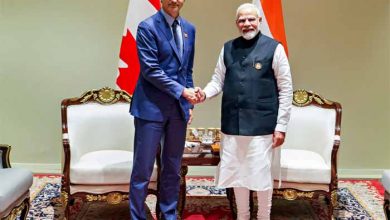China both worries and hopes as US departs Afghanistan

Beijing, Aug 22 (AP): In the US departure from Afghanistan, China has seen the realisation of long-held hopes for a reduction of the influence of a geopolitical rival in what it considers its backyard.
Yet, it is also deeply concerned that the very withdrawal could bring risk and instability to that backyard Central Asia and possibly even spill over their narrow, remote border into China itself and the heavily Muslim northwestern region of Xinjiang.
The Taliban’s takeover could certainly present political and economic opportunities for China, including developing Afghanistan’s vast mineral riches, and Beijing has said it is ready to help rebuild the impoverished nation. But stability will be required to reap most of those benefits, and the immediate result of the American withdrawal has been more instability, not less. I think Beijing will play up the narrative of American fecklessness and decline of Empire, painting this as evidence of why Beijing will be a better steward for the Eurasian heartland, said Raffaello Pantucci, an expert on the region at the Royal United Services Institute in London. But in reality, I am not clear that I see that many huge upsides for Beijing at the moment.
Like many nations, China is concerned about the risk of terrorism from a Taliban-led Afghanistan. Beijing has repeatedly told the Taliban that the country cannot become a breeding ground for militants to launch attacks in Xinjiang, much as Osama bin Laden used it as a base to prepare his 9/11 attacks on the US. A more proximate threat may be the spillover of militancy into Pakistan and Central Asia, where China has invested heavily and sought to build alliances. The Afghan Taliban have promised that they will break from international terrorist forces, but we still haven’t seen how they will do this because they are not officially in power, said said Li Wei, an international security expert retired from the China Institute of Contemporary International Relations.
The Taliban could be an incongruent partner for China since their religion-based philosophy is diametrically opposed to Beijing’s vision of atheist rule under the Communist Party that puts social stability and economic development above all. That, however, has not prevented China’s ultimately pragmatic leaders from reaching out to them.
Foreign Minister Wang Yi hosted a delegation led by the Taliban’s political leader, Mullah Abdul Ghani Baradar, late last month and pressed China’s hopes for stability and an end to violence and terrorist threats.
Chinese officials and state media have been critical of what they call America’s hasty retreat from Afghanistan. Taliban’s rapid victory embarrasses US, smashes image, arrogance, read a headline in the state-owned Global Times newspaper.
Despite the rhetoric, Wang told US Secretary of State Antony Blinken that China was willing to work with the US to promote the soft landing of the Afghan issue.
However, he added that the US cannot, on the one hand, deliberately curb and suppress China to damage China’s legitimate rights and interests, and on the other hand, count on China to offer support and coordination.








